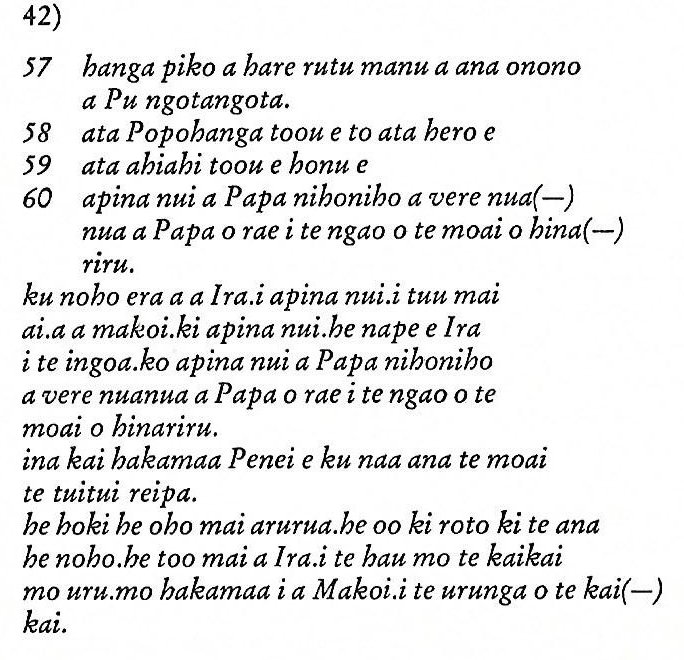We should now move on and look at what
more happened according to the last 11
lines on page 42:
We can recall the circumstances when
Makoi began his cycle, viz. when
it grew light on the 5th day:
|
he otea
he ea a Makoi.he oho he tuu ki
a(-) |
It grew light [on the 5th day]
and Makoi got up. He set out and
came to Apina. When he arrived
there he gave the name |
|
pina.he tuu
he nape i
te ingoa. |
|
E:38 |
|
1 ko
apina iti.ko rapa kura.he
oho mai |
'This is Apina Iti, this is Rapa
Kura.'. He went on and came to
Hanga O Ua [Uo]. He gave
the name 'This is Hanga O Ua [Uo]
of the beautiful wave (vave
renga).'
Makoi went on, giving names,
until he had made a (complete)
circle around both sides (of the
island).
In
Apina Nui a stone (maea)
was erected [hakatuu],
saying that the naming was done
on a (round) trip during a
single day. |
|
2 he tuu ki hanga o uo.he
nape te ingoa.ko hanga o uo |
|
a vave
renga. |
|
he nape he oho a Makoi .i te
ingoa.ka
vari ro |
|
a
arurua.aro i apina nui i
hakatuu ai |
|
te maea.etahi no raa.i nape he
oho ai. |
|
Vari. 1.
Menstruation, period (also:
tiko). 2. To tack, to veer
(nautical); ku-vari-mai-á te
miro, the boat arrives, have
veered [around Rano Kau].
Vanaga. About, circumference, to
turn in a circle; hakavari,
pliant, to bend, square;
varivari, about, to go
around; vavari, a
garland; varikapau,
circumference, to surround, a
compass, to admire; hiriga
varikapau, to go in a ring;
pa varikapau, to close
in; varitakataka (vari-taka
3) to surround. Churchill. Pau.:
Vari, marsh, mire, dirt.
Ta.: vari, dirt, mud.
Rar.: vari, mud.
Churchill. Mgv.: Vari,
paste well diluted. Mq.:
vaivai, to dilute, to thin.
Ha.: waliwali, soft,
pasty. Churchill.
Áruáru, reduplication
of aaru: to grab firmly.
Vanaga. 1. To pursue. P Mgv.:
aruaru, to run after, to
chase, to follow. Ta.: aruaru,
to pursue. 2. To raise in waves,
undulation. P Pau.: puhigaru,
a bubble of water. Mgv.: garu,
foam, froth. Mq.: naú,
waves. Ta.: aru, billow,
wave, flood. 3. (haruharu).
Churchill. Haruharu. To
rob, to steal, to arrest, to
seize, to cling, to grasp
unexpectedly, to take by force;
robber (aruaru, aaru).
Pau.: haru, to extort, to
carry off, to usurp. Ta.:
haru, robber, to seize by
force. Churchill.
Aro. Face, front, side
(of a figure); ki te aro o
..., to the front of ... Vanaga.
Presence, body, frontispiece;
ki te aro, face to face. P
Pau.: aroga, the visage;
ki te aroga, opposite.
Mgv.: aro, presence,
before; i te aro, in the
presence of. Mq.: aó,
face, in the presence of,
before. Ta.: aro, face,
front, presence, view. It is
probable that more than one word
is confounded in alo. The
significations which appear in
Southeast Polynesia are most
likely derived from a Tongafiti
alo and do not appear in
Nuclear Polynesia. The alo
belly and alo chief which
do occur in Nuclear Polynesia
are also probably Tongafiti, for
in Samoa and Tonga they are
honorific and applied only to
folk of rank, a good indication
of borrowing by the
Proto-Samoans from Tongafiti
masters. Churchill. In the
Hawaiian group, the western
portion or side of an island was
called 'the front', ke alo,
of the land, and the eastern
side was called 'the back',
ke kua. The reason of such
designations must be sought in
the fact of the arrival of the
inhabitants from the west.
Fornander.
... Ira
got up, climbed up [he ea],
went on, and reached Ruhi Hepii.
He drilled a hole into the
stone. After the hole was deep
enough, he took the ornament (rei)
and put it into the hole so that
the shiny side (rapa) was
turned outward. [He gave the
name Ruhi Hepii.]
He turned around, climbed down [he
turu], went on, and entered
the cave of Pu Pakakina.
When he arrived there he sat
down.
The
young kinsmen arrived and
rested. It grew light. On the
second day, Ira said again, 'Go
back to riding the waves!'. They
all went back out there.
Ira got up [he ea a Ira]
and again picked up the (second)
ornament. He took it [he mau],
went on, and came to
Apina Nui,
drilled a hole into the stone,
put the ornament in the hole,
with the shiny side [te rapa]
to the outside, and gave (the
place) the name 'Pu'
... (E34) |
Apina
Nui was evidently at right ascension
day 60.
|
Niu |
moe te goe |
|
Niu. Palm
tree, coconut tree;
hua niu,
coconut. Vanaga.
Coconut, palm,
spinning top. P
Pau., Ta.:
niu,
coconut. Mgv.:
niu, a
top;
niu mea,
coconut. Mq.:
niu,
coconut, a top.
Churchill. The fruit
of
miro.
Buck. T. 1. Coconut
palm. 2. Sign for
peace. Henry. The
sense of top lies in
the fact that the
bud end of a coconut
shell is used for
spinning, both in
the sport of
children and as a
means of applying to
island life the
practical side of
the doctrine of
chances. Thus it may
be that in New
Zealand, in
latitudes higher
than are grateful to
the coconut, the
divination sense has
persisted even to
different implements
whereby the
arbitrament of fate
may be declared.
Churchill 2.
Goe. Milky Way.
Vanaga. |
 |
 |
 |
|
Cb2-8 (424 = 392 +
32) |
Cb2-9 |
Cb2-10 |
|
CLOSE TO THE FULL
MOON: |
|
May 18
ZAURAK (The Boat) =
γ Eridani
(58.9) |
19
λ Tauri (59.3), ν
Tauri (59.9) |
20 (140)
4h (60.9)
JĪSHUĬ (Piled-up
Waters) = λ Persei
(60.7)
COR CAROLI (α Canum
Ven.)
|
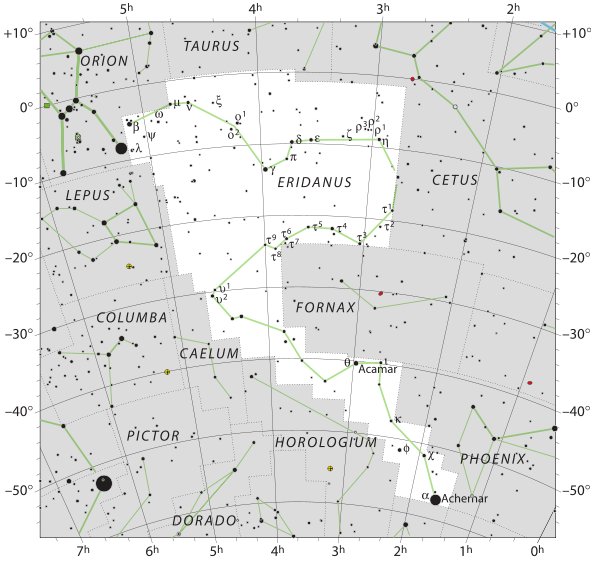
... Väinämöinen set
about building a
boat, but when it
came to the prow and
the stern, he found
he needed three
words in his rune
that he did not
know, however he
sought for them. In
vain he looked on
the heads of the
swallows, on the
necks of the swans,
on the backs of the
geese, under the
tongues of the
reindeer. He found a
number of words, but
not those he needed.
Then he thought of
seeking them in the
realm of Death,
Tuonela, but in
vain. He escaped
back to the world of
the living only
thanks to his potent
magic. He was still
missing his three
runes. He was then
told by a shepherd
to search in the
mouth of Antero
Vipunen, the giant
ogre. The road, he
was told, went over
swords and sharpened
axes. Ilmarinen made
shoes, shirt and
gloves of iron for
him, but warned him
that he would find
the great Vipunen
dead. Nevertheless,
the hero went. The
giant lay
underground, and
trees grew over his
head. Väinämöinen
found his way to the
giant's mouth, and
planted his iron
staff in it. The
giant awoke and
suddenly opened his
huge mouth.
Väinämöinen slipped
into it and was
swallowed. As soon
as he reached the
enormous stomach, he
thought of getting
out. He built
himself a raft [cfr
The Heavenly Raft, θ
Aquilae, *305], and
floated on it up and
down inside the
giant. The giant
felt tickled and
told him in many and
no uncertain words
where he might go,
but he did not yield
any runes. Then
Väinämöinen built a
smithy and began to
hammer his iron on
an anvil, torturing
the entrails of
Vipunen, who howled
out magic songs to
curse him away. But
Väinämöinen said,
thank you, he was
very comfortable and
would not go unless
he got the secret
words. Then Vipunen
at last unlocked the
treasure of his
powerful runes. Many
days and nights he
sang, and the sun
and the moon and the
waves of the sea and
the waterfalls stood
still to hear him.
Väinämöinen
treasured them all
and finally agreed
to come out. Vipunen
opened his great
jaws, and the hero
issued forth to go
and build his boat
[cfr Zaurak, the
Boat,
γ Eridani, *305 +
*118 = *58 + *365]
at last
... |
|
ºMay 14 |
15 |
16 (136) |
|
'April 21 (111) |
22 |
23 |
|
"April 7 |
8 (98) |
9 (365 + 99 = 464) |
|
MARCH 15 |
16 (75 = 98 - 23) |
17 (464 - 23 = 441) |
|
DAY 58 |
59 = 75 - 16) |
60 |
|
58 Ata Popohanga |
59 Ata Ahiahi |
60 Apina Nui |
|
58
ata Popohanga
toou e to ata
hero e |
59
ata
ahiahi toou e
honu e |
60 apina nui a Papa
nihoniho a vere nua-
nua a Papa o rae i
te ngao o te moai o
hina-
riru. |
|
Barthel: 'Yours is
the morning shadow'
refers to an area in
Ata Hero where the
house of Ricardo
Hero is now located.
'Yours is the
evening shadow'
belongs to a
'turtle'. I could
not obtain any
information about
the location, but I
suspect that the
'turtle' refers to a
motif in the
narration of Tuki
Hakahevari (the
turtle is carved in
stone in a cave
along the bay of
Apina) ...
Ata 1. Dawn,
first light before
sunrise;
ku-hamu-á te ata
, dawn has broken;
ku-tehe-á te ata,
it's already
dawn (lit.: the
lights have flown).
2. Particle inserted
between the
imperative prefix
ka and the verb
to signify 'well,
carefully,
intelligently':
ka-ata-hakarivariva,
prepare it well.
Between the prefix
e and
kahara it
expresses 'to make
sure that, to take
good care that...' :
e-ata-kahara koe
o oona, be
careful not to get
dirty;
e-ata-kahara koe o
kori te moa o te
tahi pa, be sure
not to steal
chickens of another
property. 3. More:
iti, small;
ata iti,
smaller;
he-ata-ata iti-iti
ró, the smallest
of all. Vanaga.
Âta 1. Shadow:
he-veveri te
poki, ana tikea
toona âta, the
child is frightened
at seeing his
shadow; person's
reflection (in
mirror, in water):
he âta oou-á,
it's your own
reflection. 2. To be
frightened by a
shadow: he-âta te
îka, the fish
are frightened (and
they flee) by
people's shadows.
Vanaga. 1. Image,
picture, portrait,
design; to draw, to
paint (shadow
sense). P Mgv:
ata, image,
likeness, portrait,
shadow of a human
being, form, shape,
appearance, imprint,
impression. Mq.:
ata, image,
statue, portrait,
shadow, surface; to
design, to mark.
Ta.: ata,
shade, shadow
appearance, form,
representation of an
object, cloud,
cloudy. 2.
Transparency, end of
day, sunset (bright
sense); e ata,
red clouds; ku
ata,
transparent; ata
mea, ata tea,
ata tehe,
dawn, daybreak,
sunrise; ataata,
end of day, sunset.
P Mgv.: ata,
morning or evening
twilight, daybreak,
dawn; ata haihai,
evening twilight, a
beautiful sunset;
ataiai,
twilight, clouds red
with the sunset;
atakurakura, a
beautiful sunrise or
sunset; atareureu,
dawn, the first peep
of day, morning
twilight. Mq.:
ata, to appear,
to rise, to shine
(of stars); ata
uá, morning
twilight; ataata,
diaphanous,
transparent. Ta.:
ata, twilight.
3. A designation of
space; ata
hakahohonu,
abyss; ata
hakaneke mai,
nearby, close at
hand; ata tapa,
lateral, marginal. 4
? Ata kimikimi,
to inquire; ata
puo, to hill a
plant; ata ui,
to examine, to
taste. Churchill.
Atahenua (ata
3 - henua 1),
landscape,
countryside.
Atakai: 1.
Generous,
hospitable,
beneficent,
indulgent, liberal,
obliging;
prodigality,
indulgence; rima
atakai,
benevolent,
generous,
open-handed; gift,
liberality. 2. Calm,
unperturbed,
grateful. Churchill.
Ata-ta T,
evening (? ataata).
Atatehe (ata
2 - tehe 1),
dawn; popohaga
atatehe,
morning, early in
the morning.
Churchill.
Hero. Herohero.
1. Crimson,
bright
red; he varu i te ki'ea ka herohero ró te hakari, to paint one's
body red with
ki'ea; ku hú
á te huka-huka, ku
herohero á i roto i
te ahi, burning
wood shows red in
the fire. 2. The
colour of
ripe fruit, the
yellow of ripe
bananas. 3.
Figuratively:
angry: ku
herohero á te manava
= ku ká te manava.
Vanaga. Herohero.
Scarlet,
suffocating T.
Ura herohero,
brilliance of
flames. Churchill.
Ahi. Fire;
he-tutu i te ahi
to light a fire.
Ahiahi =
evening;
ahiahi-ata, the
last moments of
light before
nightfall. I te
ahiahi-ata he garo
te raá ki raro ki te
vai kava. In the
evening the sun
disappears under the
sea. Ku-tea-á te
hetu'u ahiahi,
the evening star has
risen. Vanaga. 1.
Candle, stove, fire
(vahi);
ahi hakapura,
match; ahi
hakagaiei,
firebrand waved as a
night signal. P
Mgv.: ahi,
fire, flame. Mq.:
ahi, fire,
match, percussion
cap. Ta.: ahi,
fire, percussion
cap, wick, stove. 2.
To be night;
agatahi ahi atu,
day before
yesterday. 3. Pau.:
ahi,
sandalwood. Ta.:
ahi, id. Mq.:
auahi, a variety
of breadfruit. Sa.:
asi,
sandalwood. Ha.:
ili-ahi, id.
Ahiahi,
afternoon, night;
kai ahiahi,
supper. P Pau.,
Mgv., Mq., Ta.:
ahiahi,
afternoon, evening.
Ahipipi (ahi
1 - pipi 2) a
spark, to flash.
Churchill. |
And should we then add 5 days
we will reach right
ascension day 65 which
possibly also could have corresponded to
Apina Iti - for time
was not linear but cyclical:
|
ka moe i roto |
te henua |
ihe manu ra |
 |
 |
 |
|
Cb2-11 |
Cb2-12 (392 + 36 = 428) |
Cb2-13 |
|
CLOSE TO THE FULL
MOON: |
|
May 21 |
22 (142) |
23 |
|
υ (48) Persei
(61.2) |
BEID
(Egg) =
ο¹
Eridani
(62.2),
μ
Persei (62.8)
VINDEMIATRIX ( ε Virginis)
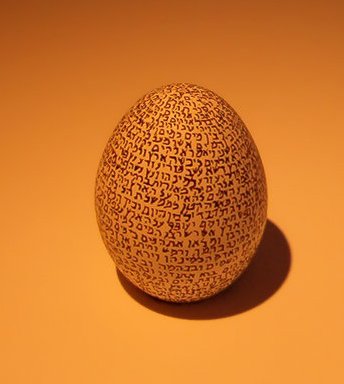 |
Al Dabarān-2 (The Follower)
HYADUM I =
γ
Tauri
(63.4)
*22.0 = *63.4 - *41.4 |
|
... Upsilon
(uppercase Υ, lowercase υ;
Greek: ύψιλον, ýpsilon ...
is the 20th letter of the
Greek alphabet. In the
system of Greek numerals, Υ
has a value of 400. It is
derived from the Phoenician
waw ... Waw (wāw
'hook') is the sixth letter
of the Semitic abjads ...
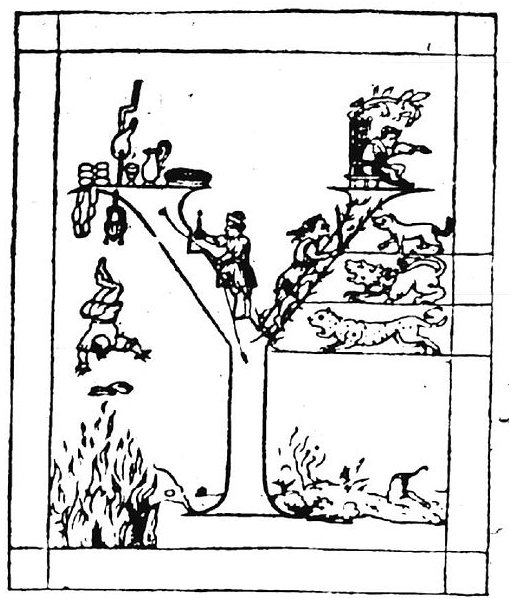
...
Upsilon is known as
Pythagoras' letter, or the
Samian letter,
because Pythagoras used it
as an emblem of the path of
virtue or vice
... |
|
'April 24 |
25 (115 = 142 - 27 = 460 / 4) |
26 |
|
CLOSE TO THE SUN: |
|
Nov 20 |
21 (325) |
22 |
|
ψ
Scorpii (244.6),
LESATH
(Sting) =
ν
Scorpii
(244.8) |
χ
Scorpii (245.1),
YED PRIOR (Hand in Front) =
δ
Ophiuchi,
δ
Tr.
Austr. (245.5) |
YED POSTERIOR (Hand Behind)
=
ε
Ophiuchi,
RUKBALGETHI SHEMALI
(Northern Knee of the Giant)
= τ Herculis
(246.6).
δ
Apodis (246.7),
ο
Scorpii (246.8) |
|
Lesath was a
name both for ν (*244) and
for υ (*264) Scorpii, and
there were 20 right
ascension days from ν to υ. |
|
'Oct 24 |
25 |
26 (299) |
|
kua pua to hau |
te kahi huga |
kiore - henua |
|
Hu.
1. Breaking of wind. T Mgv.,
uu, to break wind.
Mq., Ta.: hu, id. 2.
Whistling of the wind, to
blow, tempest, high wind. P
Pau.: huga, a
hurricane. Churchill. Mgv.:
hu, to burst, to
crackle, to snap. Ha.: hu,
a noise. Churchill.
... In other words, the
ancient Druidic religion
based on the oak-cult will
be swept away by
Christianity and the door -
the god Llyr - will languish
forgotten in the Castle of
Arianrhod, the Corona
Borealis. This helps us
to understand the
relationship at Rome of
Janus and the White Goddess
Cardea who is ... the
Goddess of Hinges who came
to Rome from Alba Longa. She
was the hinge on which the
year swung - the ancient
Latin, not the Etruscan year
- and her importance as such
is recorded in the Latin
adjective cardinalis
- as we say in English 'of
cardinal importance - which
was also applied to the four
main winds; for winds were
considered as under the sole
direction of the Great
Goddess until Classical
times ... |
 |
 |
 |
|
Cb2-14 |
Cb2-15 |
Cb2-16 (432 = 2 * 216) |
|
CLOSE TO THE FULL
MOON: |
|
May 24
HYADUM II = δ¹ Tauri
(64.2) |
25
Net-19 (Crow)
AIN
(Eye) =
ε Tauri,
θ¹
Tauri,
θ²
Tauri (65.7) |
26 (146)
no star listed (66) |
|
'April 27 |
28 (118 = 4 * 29½) |
29 |
|
... There
was no water in the village.
The lakes and rivers were
dry. Raven and Crow, two
young girls who were having
their first menstrual
courses, were told to go and
draw water from the ocean.
Finding the journey too
long, Raven decided just to
urinate into her
basket-bucket. She decieved
no one and was severly
scolded. Crow returned much
later but with drinking
water. As a punishment,
Raven was condemned never to
find water in the summer;
only in winter would she
find something to drink. For
that reason the Raven never
drinks during the hot
months; she speaks with a
raucous voice because of her
dry throat
... |
|
DAY 64 |
DAY 1 = 65 - 64 |
2 |
|
- |
1 Apina Iti |
2 Hanga O Uo |
|
CLOSE TO THE SUN: |
|
Nov 23
Heart-5 (Fox)
σ
Scorpii
(247.0),
HEJIAN = γ Herculis
(247.2),
ψ
Ophiuchi (247.7) |
24
ρ
Ophiuchi (248.1),
KAJAM (Club) =
ω
Herculis
(248.3),
χ
Ophiuchi (248.5),
SHE LOW (Market Tower) = υ
Ophiuchi,
Tr.
Austr. (248.7), ζ Tr. Austr.
(248.8) |
25 (329)
Al Kalb-16 (The Heart) /
Jyeshtha-18 (Eldest) /
ANA-MUA-1 (Entrance pillar)
ANTARES
= α Scorpii
(249.1),
MARFIK (Elbow) = λ Ophiuchi,
φ Ophiuchi (249.5), ω
Ophiuchi (249.8) |
|
'Oct 27 (300) |
28 |
29 |
This was where the text on the G
tablet was beginning (on its side a):
|
0h |
MARCH 22
(*1) |
23 (82) |
|
no glyph |
 |
 |
|
Ga1-1 |
Ga1-2 |
|
HYADUM
II = δ¹
Tauri
(64.2) |
Net-19
(Crow)
AIN
(Eye) =
ε
Tauri,
θ¹
Tauri,
θ²
Tauri
(65.7) |
no star
listed
(66) |
|
May 24 |
25 (145) |
26 (*66) |
|
°May
20 |
21 (*61) |
22 (142) |
|
'April
27 |
28 (118) |
29 (*39) |
|
"April
13 |
14 (104) |
15 (*25) |
 |
|
NAKSHATRA
DATES: |
|
SEPT
20
(*183) |
21 (264) |
EQUINOX |
|
Heart-5
(Fox)
σ
Scorpii
(247.0),
HEJIAN =
γ
Herculis
(247.2),
ψ
Ophiuchi
(247.7) |
ρ
Ophiuchi
(248.1),
KAJAM
(Club) =
ω
Herculis
(248.3),
χ
Ophiuchi
(248.5),
SHE LOW
(Market
Tower) =
υ
Ophiuchi,
Tr.
Austr.
(248.7),
ζ Tr.
Austr.
(248.8) |
Al Kalb-16 (The Heart) /
Jyeshtha-18
(Eldest)
/
ANA-MUA-1
(Entrance
pillar)
ANTARES
= α
Scorpii
(249.1),
MARFIK
(Elbow)
= λ
Ophiuchi,
φ
Ophiuchi
(249.5),
ω
Ophiuchi
(249.8 |
|
Nov
23 (327) |
24 |
25
(*249) |
|
°Nov
19 |
20
(*244) |
21 (325) |
|
'Oct
27 (300) |
28 |
29
(*222) |
|
"Oct
13 (286) |
14 |
15
(*208) |
 |
Beyond the list of place names
followed the continuation of the
story:
|
E:42 |
|
ku noho era a a Ira.i
apina nui.i tuu mai |
Ira had remained in Apina
Nui and was there when Makoi
returned. Ira gave the
name 'Apina Nui A Papa
Nihoniho A Vere Nuanua A
Papa O Rae' to the neck of
the figure of Hinariru. |
|
ai.a a makoi.ki apina
nui.he nape e Ira |
|
i te ingoa.ko
apina nui a Papa nihoniho |
|
a
vere nuanua a Papa o rae i
te ngao o te |
|
moai o hinariru. |
|
Vere. 1. Beard,
moustache (vede G);
vere gutu, moustache;
verevere, shaggy,
hairy, tow, oakum. Mgv.:
veri, bristly, shaggy,
chafed (of a cord long in
use). Mq.: veevee,
tentacles. Ta.: verevere,
eyelash. 2. To weed (ka-veri-mai,
pick, cut-grass T);
verevere, to weed. P
Mgv.: vere, to weed.
Mq.: veéveé, vavee,
id. 3. Verega,
fruitful, valuable;
verega kore, unfruitful,
valueless, contemptible,
vain, futile, frivolous;
tae verega,
insignificant, valueless;
mataku verega kore,
scruple. Mgv.: verega,
a design put into execution;
one who is apte, useful,
having a knowledge how to do
things. 4. Ta.: verevere,
pudenda muliebria. Ma.:
werewere, id. (labia
minora). Churchill. Sa.:
apungaleveleve,
apongaleveleve, a
spider, a web. To.:
kaleveleve, a large
spider. Fu.: kaleveleve,
a spider, a web. Niuē:
kaleveleve,
a cobweb. Nukuoro:
halaneveneve,
a spider. Uvea:
kaleveleve,
a spider. Mgv.:
pungaverevere,
a spider. Pau.:
pungaverevere,
cloth. Mg.:
pungaverevere,
a cobweb. Ta.:
puaverevere,
id. Mao.:
pungawerewere,
puawerewere,
puwerewere,
a spider. Ha.:
punawelewele,
a spider, a web. Mq.:
pukaveevee,
punaveevee,
id. Vi.: lawa,
a fishing net;
viritālawalawa,
a cobweb;
butalawalawa,
a spider. Churchill 2.
Nua. 1. Mother;
this seems a more ancient
word than matu'a poreko.
2. Blanket, clothing, cape
formerly made from fibres of
the mahute tree.
Vanaga. Cloak T. Churchill.
Nu'a 1. Thick;
piled one on top of the
other, as
leis, mats, or
ocean swells; heaped; lush,
thick-growing; much
traveled, as a road;
multitude, as of people,
mass. Also
hānu'a.
Moena kumu nu'a,
a sleeping mat made thick at
one end to serve as a head
rest; lit. 'mat
piled beginning'.
Nu'a
moena, a heap
of mats.
Nu'a kanaka,
many people.
Haki nu'a ka uahi i ke
kai, the spray
breaks in masses in the sea.
Ka nu'a o ka palai,
the thick clump of
palai ferns.
Ho'o nu'a, to
heap up; to give generously
and continuously; to
indulge, as a child;
surging, rising in swells,
as the sea. 2. A kind of
seaweed. Nu'a-kea, a
goddess of lactation.
Wehewehe.
Nuahine. 1. Old
woman. 2. Ko te Nuahine
ká umu a ragi kotekote,
ancient name of 'the woman
in the moon' inspired by the
resemblance of its landscape
with the likeness of a woman
sitting, lighting the fire
of her oven. Vanaga.
Nuehine. Old woman.
Churchill.
"[Englert
1948, 165:] '... se selia
nombrar Ko te Nuahine
káumu à rangi kote kote
que significa: La vieja que
enciende el curanto en el
cielo kotekote. Puedo
haber sido una
personificación de la luna
porque las viejos decían,
comentando este nombre, que
no es una montaña que seve
en la luna, sino una mujer
anciana que está suntada
[sentada?] al lado un gran
curanto umu pae (de
piedras en circulo)."
(Barthel) |
|
ina kai hakamaa Penei e
ku naa ana te moai |
Nothing [ina kai] at
all was said, and thus [penei]
the figure and the ornament
remained a secret [naa]. |
|
te tuitui reipa. |
|
he hoki he oho mai
arurua.he oo ki roto ki te
ana |
The two turned around, went
on, entered [he oo ki
roto ki] the cave, and
remained there. Ira took [he
too mai] the string (hau)
for making string-figures (kaikai)
in order to introduce [uru
mo hakamaa] Makoi to the
game and help him gain
knowledge of the content (urunga)
of the string-figures. |
|
he noho.he too mai a
Ira.i te hau mo te kaikai |
|
mo uru.mo hakamaa i a
Makoi.i te urunga o te
kai(-) |
|
kai. |
|
Uruga. Prophetic
vision. It is said that, not
long before the first
missionaries' coming a
certain Rega Varevare a
Te Niu saw their arrival
in a vision and travelled
all over the island to tell
it: He-oho-mai ko Rega
Varevare a Te Niu mai Poike,
he mimiro i te po ka-variró
te kaiga he-kî i taana
uruga, he ragi: 'E-tomo te
haûti i Tarakiu, e-tomo te
poepoe hiku regorego, e-tomo
te îka ariga koreva, e-tomo
te poporo haha, e-kiu te
Atua i te ragi'. I te otea o
te rua raá he-tu'u-hakaou ki
Poike; i te ahi mo-kirokiro
he-mate. Rega Varevare,
son of Te Niu, came
from Poike, and
toured the island
proclaiming his vision: 'A
wooden house will arrive at
Tarakiu (near
Vaihú), a barge will
arrive, animals will arrive
with the faces of eels (i.e.
horses), golden thistles
will come, and the Lord will
be heard in heaven'. The
next morning he arrived back
in Poike, and in the
evening when it was getting
dark, he died. Vanaga. |
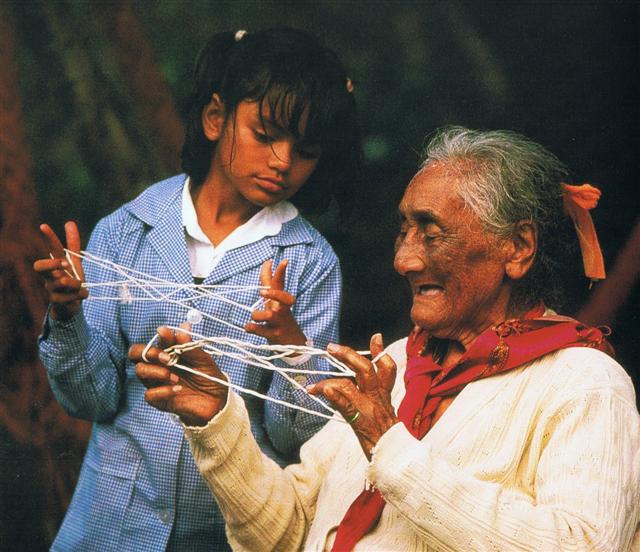
|
